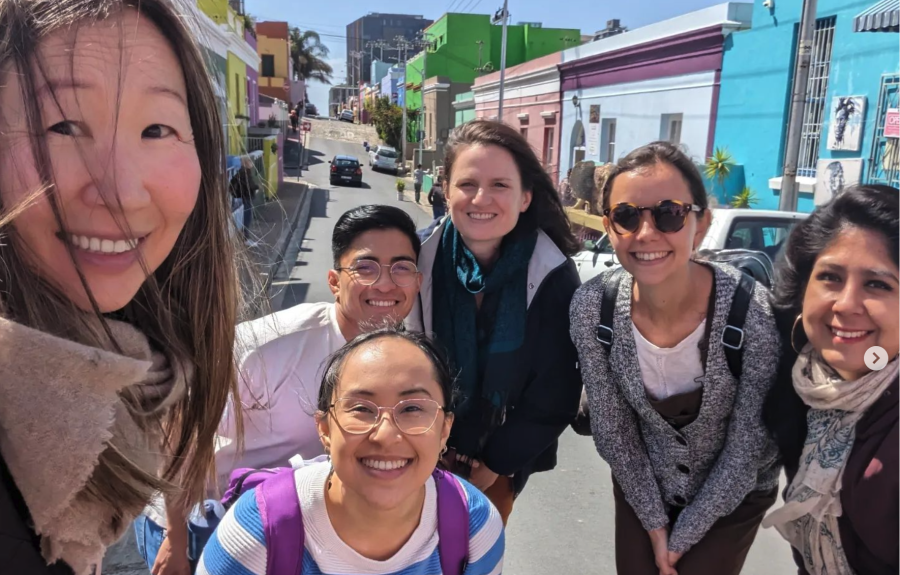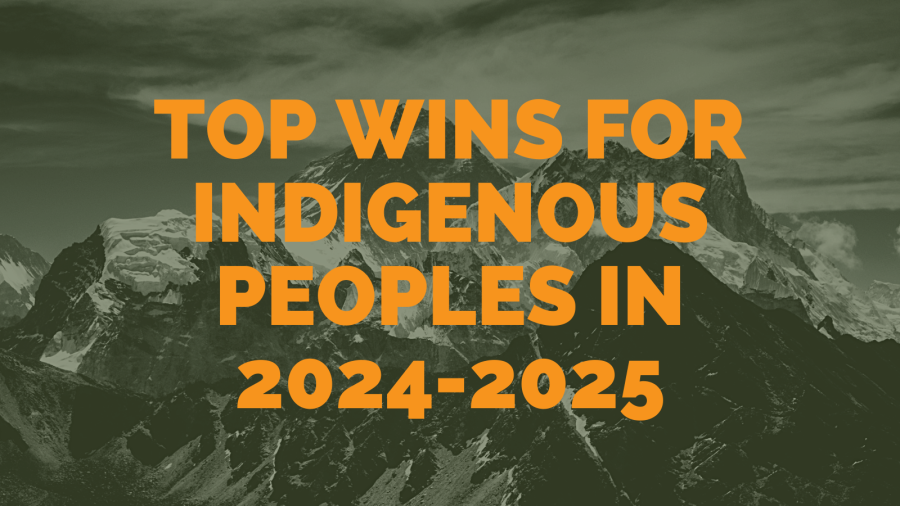Those concerned about the fate of the planet have used the now-famous photo of the earth taken by the first U.S. astronauts to mobilize constituencies for both conservation and peace. Its image of unity has proven powerful, helping us think, in practical terms, about global interdependence in relation to fragile ecosystems. The problem is that no people appear in the view, not does it give any evidence of the effect of state boundaries on politics and peoples' imaginations.
Ailton Krenak of the Union of Indigenous Nations in Brazil offers a complementary image. "We see it like this: it is as if we are all in a canoe traveling through time. If someone begins to make a fire in their part of the canoe .... it will affect us all. And it is the responsibility of each person in the canoe to ensure that it is not destroyed."
Together, these two images present the challenge for the 1990s. To realize the promise of the coming millennium will demand a new way of thinking about ourselves, our world, and our relationship to one another. As a society, we need to ask ourselves, who do we think we are?
That questions is particularly potent now that the Cold War is over. In the Third World, centuries of colonialism and decades of superpower rivalry have left a damaging legacy. Southern countries and other peoples victimized by colonial expansion and its consequent political and economic systems are intensifying their calls for justice, not charity. The challenge is made even more difficult because a major export of the developed world has been the concept of the nation state, with its emphasis on militarization and internal security.
On the positive side, one lesson to be drawn from the collapse of communism is that grassroots politics can lead to revolutionary changes in governments and institutions of all kinds. In Eastern Europe and the Soviet Union, new thinking, developed and embraced first by local actors, opened up political possibilities on an international scale.
As the next millennium approaches, Cultural Survival hopes to take that lesson toward a second wave of political action that will help turn around relations between North and South, just as ordinary citizens helped reverse the tide of East-West relations. But while Western movements have focused on the weapons of war, the politics of the 1990s will center on a single interlocking agenda: human rights, the environment, and development. As its heart are some 600 million indigenous people. Their fate is a pathway and litmus test of our progress toward a peaceful and sustainable world order. From the periphery of political, economic, and social power, they are moving to the center of world attention. Our survival depends on ensuring that no one, particularly the poorest of the poor, is thrown out of the canoe or viewed as dispensable. This is a moral and a practical imperative.
Readers of Cultural Survival Quarterly know this well. On the practical side, indigenous peoples live in the world's last wild places, sheltering much of the world's genetic heritage. By helping native peoples save themselves, we help them protect fragile environments on which we all ultimately depend. We need them for their part of the canoe to be cared for. But we also just need them to be - as human beings with a culture, a history, and a hoped-for common future as a people. That is the moral imperative.
It is past time to begin addressing this fundamental issue; human rights and the ability of human beings to discover ways to live together in plural societies. We want "At the Threshold" to help foster that process in communities throughout the United States.
We invite you involvement, your ideas, and your time. What must be done? What is our role at the local level? How can cause governments and business, schools and churches and community organizations to advance human rights, protect and conserve fragile resources, and address the conditions that condemn too many of choose between environmental degradation and endless poverty?
The job will be easy, nor will be accomplished overnight, but this is the time to act. Indian organizations are stronger and better organized than ever, indigenous peoples themselves are defining and leading movements for their rights. They are also looking to first-world activists as allies and partners in a new alliance. Cross-cultural collaboration will join more familiar forms of political action, even if centuries of colonialosm and ensuing powerlessness have left a legacy of distrust and poverty that complicates this alliance.
With Cultural Survival entering its third decade, it seems that for 20 years we have been preparing for this point in history. Our agenda - revolving around nationalism, ethnicity, resource wars, sustainable development, and the future of the state and international organizations - dominates today's policy debates. Conservation groups are coming to terms with the human dimension of managing natural resources, human-rights advocates are accepting the challenge to address the economic pillars of rights abuses, and peace groups are examining the roots of ethnic conflict and civil wars.
Other external events are also setting the parameters for Cultural Survival's work in the 1990s. Besides the commemoration of Columbus' voyage to the Americas, the United Nations Conference on the Environment and Development will take place in Rio in June 1992. Moreover, the UN has named 1993 as the International Year of the World's Indigenous Peoples, opening educational and policy opportunities in minority and indigenous rights.
It is reasonable to hope that this unique confluence will raise expectations that governments and international organizations must deal with environmental issues. But if the moment is also to improve indigenous peoples' lives, they must have a strong presence - in Rio and beyond. We in the first world must mobilize with them and on their behalf now.
Please join us in this historic opportunity.
Article copyright Cultural Survival, Inc.



